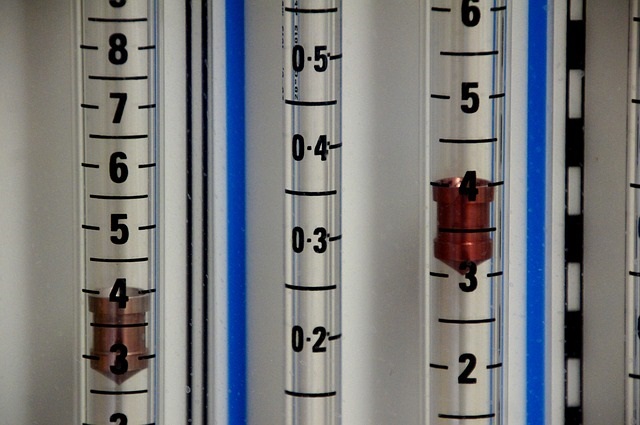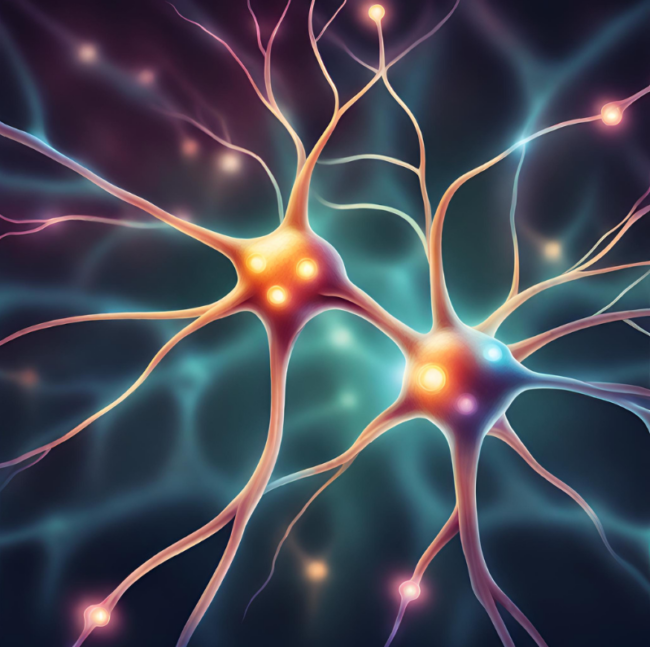Over the course of writing our book, Thiamine Deficiency Disease, Dysautonomia, and High Calorie Malnutrition, I had the privilege of reading hundreds of Dr. Lonsdale’s case studies, a treasure trove of clinical insight. One in particular has become incredibly important and may shake the very foundation of the current genetic paradigm. The case involved an 8 year old girl who suffered from severe asthma and bronchitis brought on, presumably, by a genetic mutation in a protein that controls the folding of other proteins, called alpha antitrypsin (AAT). The deficiency in AAT that ensues causes an accumulation of misfolded proteins that wreak havoc on the liver and on the lungs.
Dr. Lonsdale reported the details here on our blog, and of course, in the book. What was most striking about her case was not that thiamine proved beneficial. Thiamine sits atop the mitochondrial energy production machinery acting as gatekeeper of sorts and so this alone makes thiamine critical to health. That is not why this case is important, however. Nor is it because her case demonstrated how a series of what are essentially vitamin treatments effectively quelled what is usually a lifelong condition. Except for two episodes, she has been asthma free for 30 years. Those findings are impressive enough by themselves, but they pale in comparison to the discoveries her case has motivated; namely, that genetics can be altered by nutrients, or more specifically, that mitochondrial bioenergetics may determine whether and how genetic disorders are expressed. Sit with that one for a moment. Energy, not genetics, may be the most fundamental component of health or disease. Energy. Simple. Uncomplicated. Energy.
Why we have not considered energy availability in the initiation or maintenance of disease boggles the mind. Maybe it’s just too obvious. While I was in graduate school, mitochondrial energy production was not considered in any depth. Barring outright starvation or what were believed to be rare genetic aberrations of mitochondrial DNA, it was assumed that mitochondria would forever and always, no matter the circumstances, produce sufficient ATP to power all cellular function. Nary was a thought given to the possibility that energy production could be absconded by environmental or pharmaceutical toxicants or that mitochondria require micronutrients, vitamins and minerals, to turn macronutrients into fuel. This stuff just happened, magically I expect. And Warburg, well his work was no more than a historical footnote, something medical science had progressed beyond. For all intents and purposes, mitochondria were just there, doing their thing. Period. No need to consider otherwise. I suspect had I continued on the more traditional academic trajectory, I might not have ever considered the importance of mitochondria.
Fortunately, circumstance intervened, plans changed, and over the last several years I have been privileged to learn from Dr. Lonsdale and to interact with thousands of chronically ill patients via my work on Hormones Matter. Their illnesses were refractory to modern medicine, and I would argue, sometimes initiated, and almost always, worsened by conventional therapeutics. Their illnesses demanded I look for other solutions and this led me to the mitochondria. What if the mitochondria were not the magical black boxes we thought them to be? What if we needed more than just calories to make cellular fuel? And what happens when we have more calories than actual nutrients? Does the machinery work just as well or do we start seeing decrements in energy production that underpin many of complex disease process of modernity? Unfortunately, as the obesity and chronic illness epidemics suggest, it is definitely the latter.
From Food to Fuel
Mitochondria convert the food we eat into the cellular energy our bodies require. To perform this magic they require a sufficient supply of both macro and micronutrients. For far too long we have paid heed only to macronutrients, the carbohydrates, fats, and proteins, while completely ignoring the micronutrients, the vitamins and minerals that power machinery that makes the whole operation possible. Indeed, the literature is rife terms like ‘overnutrition’ an absolutely ludicrous proposition that not only errantly equates the ingestion simple calories with vitamins and minerals but suggests that somehow we all suffer from nutritional overload i.e. we get too many nutrients from the modern American diet. How’s that for magical thinking? Imagine the dissonance required to argue that the Big Mac provides too many nutrients; empty calories, and chemicals, yes, but too many nutrients? That is what the concept of overnutrition implies.
Ignoring the absurdity of this proposition for a moment, let us consider the mitochondrial black box. In addition to a ready supply of molecular oxygen, (which, interestingly enough, is also thiamine dependent), it takes 22 vitamins and minerals to power the mitochondrial enzymes that convert food into ATP, cellular energy. (We have a fantastic graphic detailing the mitochondrial vitamins and minerals in chapter 3 of our book). Deficiencies in any one of these nutrients throws a monkey wrench in the machinery, things back up, compensatory reactions begin, and no matter how many raw materials (carbohydrates, fats, proteins) are waiting to be converted into product (ATP/energy), without fully operational enzymes, those raw materials will sit idle, or more specifically, they will back up at the factory gates and eventually be shuttled into storage (fat) for use at another time. (Yes, fat storage is a protective mechanism). For all its complexity, it’s quite simple, without micronutrients, the mitochondria begin to fail and when they do, all sorts of complicated reactions begin, reactions that can be mapped quite easily, but vary considerably in their individual expression owing to the individual’s unique constitution of genetic and environmental tolerances. Invariably though, the organ systems hardest hit are those that require the most energy, the brain, heart, GI, musculature. (Yes, nutrient deficiencies affect brain function, quite severely in fact, a concept many are loathe to admit.)
Insufficient nutrients equals insufficient bioenergy, or ATP, which in turn equals disease. When evaluating health and disease, the question we should be asking is do the mitochondria have the components to make energy? If yes, then the individual can withstand all sorts of toxic insults for long periods of time before finally succumbing. If no, then downward trajectory of complex illness begins, sooner. In some cases, before birth.
Why Do We Ignore Energy?
If it’s really that simple, why do we ignore bioenergetics in health and disease? The answer is as much about philosophy and world view as it is about science with equal parts economics and self-interest thrown in for good measure. The cynic in me thinks that we ignore energy because it affords far too few opportunities to pray at the altar of pharmaceutical science. After all, if energy availability is at the foundation of health and it absence evokes disease, then maintaining or restoring health boils down to nothing more than a ready supply of sufficient micro and macronutrients to meet the needs of the organism. Nothing sexy there and certainly not a lot of profit with the ‘eat well and live healthy’ message.
If we were to recognize that health depends upon mitochondrial energetics, then we’d have to admit to all the products and processes in modern living that derail energetics, like the industrial, agricultural, or pharmaceutical chemicals that not only directly damage the mitochondria, our endogenous energy factories, but simultaneously demand of those factories more energy for detoxification and survival. We’d have to admit to ourselves that food-like substances we crave fail to provide sufficient micronutrients, the micronutrients required to power the mitochondria and produce injury, something few of us are willing to accept. If we looked at energetics as a basis for health or disease, we’d have to look seriously at vitamins and minerals, and that’s just not sexy. Basic nutrition, the kind most of our grandmothers preached, is not interesting. It’s not profitable (imagine all the industries that would collapse) and it’s just too damned obvious to be real. Or is it?
Mitochondria, Energy and Misfolded Proteins
If we return to Dr. Lonsdale’s patient, the little girl with a genetic disorder that causes misfolded proteins that preferentially affect the lungs and liver and consider how in the world something as simple as thiamine resolved her disease process, we come back to energy. The thiamine provided her mitochondria with the fuel they needed to produce energy, energy that could be used to overcome the misfolded proteins that were damaging her lungs. It’s that simple.
Protein folding is an energy dependent process, one with many correction or protection points where, when errors occur, when proteins are misfolded, the body initiates its built-in mechanisms to either correctly refold the protein or sequester it, thus removing the possibility of causing harm. These functions are energy dependent too. No energy, no corrections or protections. The errors continue, the damage builds, until the entire system is compromised. The simple act of supplying the body with the necessary substrates to create cellular energy allows it to overcome all manner of disease processes. Conversely, depriving the body of those same substrates, initiates and exacerbates disease.
In the case of AAT deficiency, research suggests that up to 50% of folks with these mutations are thiamine deficient, whether by cause or consequence is unknown, however. But it doesn’t matter. If we recognize the energy is important for health, and that certain vitamins and minerals are necessary to create that energy, then the roots of many diseases processes become clear. Think about how many neurodegenerative disorders involve misfolded proteins, Alzheimer’s and Parkinson’s to name but two. Is energy availability at the foundation of these processes? And if so, can they be prevented? Possibly.
If energy, or more specifically, the nutrients required to produce energy, lay at the foundation of health, shouldn’t all medical evaluations begin with two fundamental questions: 1) what does the patient require to achieve health and 2) is he/she meeting those requirements? I think they should, and yet, when is the last time a physician tested or even inquired about your diet and nutrient status? And if we’re honest with ourselves, when is the last time we considered addressing our own nutrient deficiencies or dietary issues? Chances are, most of us do not look seriously to nutrients unless or until all else fails; until we are absolutely desperate to find a solution, any solution, to the chronic pain of illness. The place we should look first, we look last. I told you vitamins and minerals weren’t sexy. Heck, most do not even consider them ‘real medicine’.
The notion that nutrients do not matter and have no role in medicine is so pervasive that even when a physician runs the most basic of nutrient panels and finds significant deficiency, both the physician and the patient proceed as if the labs were normal, because after all, there was no ‘real’ problem identified. I cannot tell you how many times patients communicate with us how their labs were completely normal, dismissing severe nutrient deficiencies outright.
When we are deficient in critical nutrients, no matter the diagnosis or even the origins of the illness and no matter what treatment is offered, it will fail, unless and until those basic energetic requirements are met. Period. Energy is required to sustain life. The mitochondria simply do not work very well absent critical nutrients. And when the mitochondria fail, so too does everything else, maybe not quickly, but inevitably. Don’t believe me? Look it up; or at the very least, ask yourself honestly if your current medical treatments are working. My guess, if you are reading this, things are not going so well.
The bottom line is that the body can overcome all manner of genetic and environmental insults provided it has the energy to do so. Energy production requires vitamins and minerals. Absent those nutrients, health is impossible.
We Need Your Help
More people than ever are reading Hormones Matter, a testament to the need for independent voices in health and medicine. We are not funded and accept limited advertising. Unlike many health sites, we don’t force you to purchase a subscription. We believe health information should be open to all. If you read Hormones Matter, like it, please help support it. Contribute now.
Yes, I would like to support Hormones Matter.
This article was published originally on October 17, 2017.















https://www.sciencedirect.com/science/article/pii/S0962892422001386
Gillian Griffiths’ lab in Cambridge has demonstrated how mitochondria are essential to CD8+ T-cell killer cytotoxic activity. She writes in the latest print-only edition of King’s Parade, King’s College Cambridge’s Magazine, that “One of the things we’ve recently been trying to identify is the mechanism that allows T cells to refill their secretory granules and keep on killing. What we noticed was a suprising causal connection to mitochondria, which we’ve found are able to make some of their own proteins and instruc the cell as to how many of its other proteins can be made to refill the granules. So to ‘top up’ your granules, you need healthy mitochondria. That was a completely unexpected link, which is what I really love spotting!” The Winter 2022 edition of the alumnus magazine should be uploaded to https://www.kings.cam.ac.uk/members-and-friends/publications/kings-parade later – see p7 then and what I assume is the connected research in the link above.
The article states “The bottom line is that the body can overcome all manner of genetic and environmental insults provided it has the energy to do so.”
Please read https://neuromuscular.wustl.edu/mitosyn.html and reconsider.
Dr. R. E. Zee
Dr. Marrs have you ever treated anyone with MTHFR A1298C gene mutation? Our child is diagnosed with type 1 diabetes and we have done extensive testing – he has the MTHFR A1298C mutation, blood tests show high folate and high b12. Would that respond to thiamine? What would you do? Any advice? In our country doctors seem to not care (we did the testing ourselves and basically seek information ourselves). Thank you very much.
High b12 is an indication of low thiamine status, the b12 cannot activate without enough thiamine and i believe it just accumulates. I don’t have a source but i did read that somewhere.
Hello Dr. Chandler marrs,
I have all the symptoms of mitochondrial damage, and I’m sure I have it. I have been suffering from CFS for years, along with many other gastrointestinal symptoms. what else can i do besides thiamine and a good B complex to support my mitochondria? and how should i eat? (is coconut oil good ?, how much fat should I eat? is fruit okay? are there any general guidelines I can follow?)
I hope for help, as I have been sick for years, some days the tiredness does not allow me to get out of bed, and I cannot study. Anything, even the smallest, creates stress for me
I wholeheartedly agree with your focus on nutrition. I had fist hand experience when I adopted a vegetarian diet because my husband is allergic to meat. I lost 60 lbs without trying and cured my syndrome X. My doctor took me off all meds. What most likely made the difference was not the elimination of meat but the other things I removed from my diet like junk foods and the things I replaced them with such as fruits, vegetables, and legumes .
What really focused my attention on nutrition was the dog bite which happened before I was diabetes free. My husband’s dog snapped at me and severed my lower lip. I had emergency surgery to reattach it and sew up the side of my face. The first morning after the surgery they brought me a liquid breakfast. Juice, milk, broth and coffee. My husband informed them I was diabetic, so they took the sugar packets off my tray! My husband bought me some Odwalla Green Smoothies which helped me get through. We voiced our concerns to the doctor and he had them give me some boost nutritional drink which at least had some protein and vitamins in it. So afterwards I researched wound healing and found papers about the role arginine and vitamin K in wound healing. Following that advice after my followup reconstruction surgery resulted in an amazing recovery. My doctor was very surprised. She had 3 surgeries planned and I wound up only needing the one.
Hi Dr. Marrs, I was recently diagnosed with AL Amyloidosis, a misfolded protein disease, and wondered if you had encountered this with your studies of patients with thiamine deficiency.
Sorry, last question. I saw in one of your other posts that the thiamine deficiency testing isn’t readily available. What is your opinion on the reliability of the Great Plains or Genova organic acids test for determining thiamine and other nutritional deficiencies?
Thanks for the awesome article 🙂
Hi Suzy….I too have this same question about these Organic Acid tests. I just had Genova’s done this week, takes about a month to get results back. It doesn’t seem like any labs in the USA do this Erythrocyte Transketolase thiamine test Dr Lonsdale recomends. Also on the IV thiamine… is the thiamine level in a meyers cocktail usually adequate enough for treatment or does extra thiamine need to be added to it? Any insight you have on this Dr Marrs would be helpful. Thanks for your time…Mike
You are correct, there are no labs in the US that do the transketolase tests. See my reply to Suzie’s question. Regarding the Meyer’s cocktail, it’s a starting point. For severe deficiency, it may not be sufficient. However, that and the ‘banana bag’ used in hospitals for alcoholics are really the only things available clinically these days, as neither thiamine deficiency nor IV nutrient supplementation are well recognized in clinical care. Sadly, the Meyer’s cocktail also seems to be quite expensive in some clinics, not because it is costly in and of itself, but only because these clinics seem to be able to charge a lot for these types of treatments.
Meyer’s cocktail ingredients: http://www.altmedrev.com/publications/7/5/389.pdf
Thanks Dr Marrs….Is there more thiamine in a banana bag than a meyers cocktail? It seems you have to show up at the emergency room drunk/sick to get a higher dose of iv thiamine, and it would probably be covered by insurance…but I don’t drink. My functional Dr in Mission Viejo, CA charges $135 for a meyers iv, but she needs more convincing to add extra thiamine to it. I need to have her read your book. 🙂 How did you meet Dr Lonsdale if you don’t mind me asking?
Susie what type of thiamine did you supplement with for a year? Lipothiamine or Alothiamine perhaps? Like I mentioned I just had Genova’s NutrEval test, $159 with insurance. It’s my understanding it’s possibly free if you are on medicare. I will post my results when I get them if they answer any of these thiamine deficiency questions. My blood thiamine test was lower normal, but that’s useless it seems…having chronic health conditions is like being stuck in an endless maze isn’t it?
Hello Again….I said I would report back in once I got my Genova NutrEval test results back. First, I liked the test and what info I got back. Lots of info on the intracellular levels of vitamins and nutrients in your body. If you can afford it I think it’s useful info…at least it can save you money on not buying unneeded supplementation. As for as the thiamine level info it gives you, the results basically seemed to mimic my basic thiamine blood test. I was low normal on that and borderline on the NutraEval, so Genova’s recommendation was to supplement with 25 mg. All my B vitamins were borderline (except oddly b12). Neither said I was deficient and should start thiamine IV’s pronto. The beat/pain/cost goes on I’m affraid. I’m now awaiting my genova comprehensive stool analysis results.
One question for you Dr Marr’s if you have a moment….. What is the reason that Transkelotase tests aren’t done in the USA? Not even at Dr Lonsdale’s Cleveland Clinic or Mayo. You would think some lab would, do to all the alcoholics in this country…right? We’re they ever done here ?
If it’s the standard whole blood thiamine, the results regarding thiamine will be inaccurate. Even the WHO recognizes the problems with that test. You mentioned B12 – was it high or low? Dr. Lonsdale has long retired from CC. As to why other labs don’t do the transketolase test, I don’t have a good answer for it. Adopting new tests is very expensive and conventional labs tend to do what they have always done. The gold standards, if one looks closely enough at clinical lab methods and standards, one realizes very quickly that they are anything but. They are typically antiquated but institutionalized standards with very little questioning about whether those tests provide meaningful or accurate results. Our best bet would be to convince a smaller, independent lab that this method is worthwhile and has market potential.
The Genova NutrEval test claims to be all intracellular levels, but it doesn’t give a specific number like a basic thiamine or b12 blood test does. Instead it gives a normal, a bordeline, or a high need. Then recommends how much you should supplement with. My b12 was in the normal range on the NutrEval , on regular blood tests it’s been around 500 lately. But I havent been supplementing with it for awhile. My B1 was borderline along with the rest of my B vitamins on the NutrEval. It was 110 on a recent regular blood test. Genova recommended I should supplement with 25 mg a day of B1. I had been supplementing with magnesium(300 mg) but the NutrEval said mine was too high, were my regular magnesium blood tests are always in normal range. The NutraEval also said my mitochondrial function was fine, for what that is worth. Finding answers to problems is too hard when you don’t even know if the testing method is valid or not….forever trapped in the chronic healthcare maze….by design?
I want say I read there was a lab in Boulder, CO that did the Transkelotase test at one point, but I contacted them and they dont. You would think the CC would do it, I read where they were opening a new functional medicine dept. Do you know in what countries this test is actually performed? The Japanese seem to be at the forefront of defining the problems of thiamine deficiency and beriberi.
Thanks Again Dr Marrs
Those tests seem less than ideal and certainly confusing. The only lab we know of doing transketolase is in London. The link is listed on the thiamine testing post.
I am curious as to how the NutraEval folks determined that your mitochondrial function is fine.
Hi Dr Marrs….in regards to microchondrial activity it is listed twice on report. First in the functional imbalances section along with Need for Methylation and Toxic Exposure. There is a range of test results by color…Green is normal, yellow is marginal, and red is a problem. I’m high green on all three, so according to this no problem in any of these areas. Then there is a section for cellular energy & mitochondrial metabolites on the metabolic analysis markers page….so the organic acids test. Only real problem I had there was BHBA was too high. I’ve read to truly test mitochondrial activity you have to do a muscle tissue biopsy and test for it. But again as with the Transkelotase test isn’t done in the USA. I liked the NutrEval, if somebody can afford it or insurance covers it, I say do it. But once again its very difficult to find real answers when you don’t know if test results actually mean something or not.
As far as I am aware, there are no labs currently offering transketolase testing, the most accurate method of thiamine assessment. Typically, they offer whole blood thiamine which is recognized as being wholly useless, even by the WHO, except in the most severe thiamine deficiencies and even then, it is highly susceptible to error. For the time being, thiamine deficiency must treated clinically/empirically based upon symptoms. For other nutrients and analytes, however, those labs offer a lot useful information.
I was wondering… Does IV thiamine work to restore thiamine as a starting point if someone is very deficient? And then can you maintain it with good nutrition?
I am not a clinician, but yes, IV nutrients are more readily absorbed than oral nutrients, a may be needed to kick start long dormant enzymes in cases where thiamine deficiency is chronic or severe. Nutrition alone will not suffice for thiamine deficiency, oral supplementation is generally needed, typically at higher dosages. Nutrition, however, is important. Sugars should be avoided in general, but especially with thiamine deficiency. Sugar tends tends pop thiamine out of the cells, counteracting the supplementation.
Thank you so much! I have been taking oral thiamine for over a year with minor improvements but reading your articles makes me see the importance of being strictly sugar free. I was having sugary chocolate every couple of weeks and probably undoing the previous fortnight’s good efforts.
I will also look into sublingual or IV to give my enzymes a nudge.
I didn’t notice mention of time frames for the enzymes to start working. Are there any guidelines?
Lastly, I read the preview of your book. Some parts look a little technical. Is it designed for the lay reader? Or do you have a cliff notes version for the less technical reader that explains the principles and what to do if you suspect your dysautonomia could be caused by thiamine deficiency?
PS it would be great if you or Dr Lonsdale could address the annual CFS/ME conference. POTS is a common symptom as are many of the other health concerns that you raise. Our doctors need to be better informed!!!
The timeline differs for everyone, but if it has been a year, you may not be getting enough thiamine either because the dose is too low and/or you have transporter issues that require much higher dosages as well as other nutrients.
Regarding Dr. L speaking, he’s 93, so he doesn’t travel any more.
The book covers a very complicated topic, but I worked really hard to make it accessible for the educated lay person as well as physicians and researchers. There are a lot case studies which may prove useful as well as all of the details you need to recognize thiamine deficiency. Once you read it, you’ll be surprised at just how many conditions respond to thiamine and how common the deficiency is.
One question dr Marrs, btw thank you for this amazing article!
Is sugar from organic fruit ok if compensated with extra thiamin? Or does this still prevent one from recovering from a thiamin deficiency ? I seem to not do well on most starches as I have very poor gut health. Also, pure carnivore seem to be problematic dropping my blood sugar too much and kick of adrenaline
It should be within moderation. I am not a fan of completely restrictive diets. The key variety of whole foods, would limit or eliminate grains, but include lots of proteins, fats, some vegetables and fruits. If you can tolerate dairy, whole fat Greek yogurt is great. You can add some fruit there.
Is a slow heel reflex indicative of thiamine deficiency?
Dr. Marrs, In which chapter of your book you talk about the doses for supplementation with thiamine?
Chapter 4, but really, there is dosing information throughout with each case study.